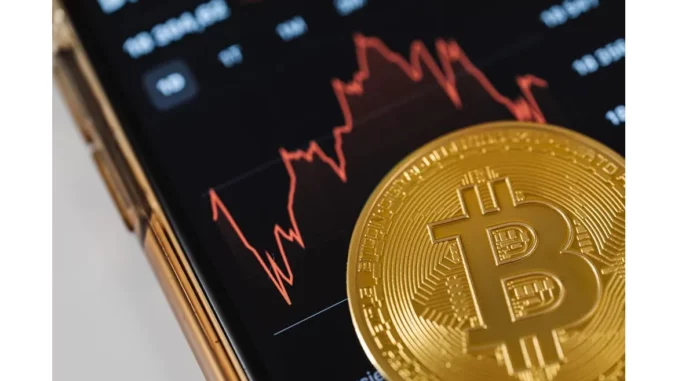
In a surprising yet strategic maneuver, former President Donald Trump has announced his intent to participate in the year’s largest Bitcoin convention, set to take place from July 25 to July 27 in Nashville, Tennessee. This event, expected to draw high-profile attendees such as presidential candidate Robert F. Kennedy Jr., former presidential candidate Vivek Ramaswamy, and Tennessee Senators Bill Hagerty and Marsha Blackburn, marks a notable shift in Trump’s political strategy. Salvadoran President Nayib Bukele, a well-known Bitcoin advocate, is also slated to attend, highlighting the convention’s significance.
Trump’s decision to engage with the Bitcoin community is a calculated effort to appeal to libertarians and cryptocurrency enthusiasts, groups that have become increasingly influential. Sources familiar with the matter leaked information to Axios, indicating that this move is part of a broader strategy to distinguish himself from President Joe Biden. Trump has publicly vowed to end what he labels Biden’s “war on crypto,” signaling a dramatic departure from his earlier skepticism toward digital currencies.
During a recent rally in Wisconsin, Trump proclaimed, “I will end Joe Biden’s war on crypto. We will ensure that the future of crypto and the future of Bitcoin will be made in America.” This declaration represents a significant shift from his first term, during which he dismissed Bitcoin as a “scam.” The rapid growth and mainstream acceptance of cryptocurrency have prompted Trump to reconsider, seeing the crypto community as a valuable new base of support.
This strategic pivot is not happening in isolation. Last week, Cameron and Tyler Winklevoss, notable crypto investors and early Facebook developers, publicly endorsed Trump, contributing the equivalent of one million dollars each in cryptocurrency to his campaign. Although a campaign official later revealed that the donation exceeded the maximum legal limit, resulting in partial refunds, the endorsement itself is a significant boost. Tyler Winklevoss did not mince words in his endorsement, stating, “President Donald J. Trump is the pro-Bitcoin, pro-crypto, and pro-business choice. This is not even remotely open for debate. Anyone who tells you otherwise is severely misinformed, delusional, or not telling the truth. It’s time to take our country back. It’s time for the crypto army to send a message to Washington. That attacking us is political suicide. This is why I will be casting my vote for President Trump in November, and I hope you will too. Onward!”
Trump’s embrace of cryptocurrency is part of a larger effort to build a diverse coalition of supporters. In addition to his overtures to the crypto community, he has also been engaging with other political groups, including making an appearance at the Libertarian Party Convention to seek their nomination. This broader strategy aims to position Trump as a forward-thinking leader who is in tune with emerging trends, contrasting sharply with Biden’s cautious approach to digital currencies.
However, this move is not without its risks. While the crypto community is passionate and vocal, it remains a relatively niche group. By aligning himself too closely with this demographic, Trump may risk alienating other segments of his base who may be skeptical or unfamiliar with digital currencies. Despite this, the potential rewards are substantial. Cryptocurrency has experienced unprecedented growth, and Trump’s alignment with this trend could attract significant financial contributions and voter support.
Trump’s involvement in the Bitcoin convention could have far-reaching implications. If he continues to garner substantial support from crypto investors, it could signal a broader shift in political fundraising strategies, with digital currencies playing an increasingly prominent role. Furthermore, Trump’s pro-crypto stance might compel other political candidates to clarify their positions on digital currencies, making cryptocurrency a more prominent issue in upcoming political debates.
As the 2024 election approaches, the role of cryptocurrency in American politics is likely to expand. Trump’s participation in the Bitcoin convention could set the stage for future political engagements with the crypto community, potentially paving the way for more politicians to engage with this burgeoning voter base. This new chapter in crypto politics is not just about securing votes; it’s about shaping the future of finance and positioning America as a leader in the digital economy.
Trump’s decision to speak at the largest Bitcoin convention of the year is a calculated move to reinvent his political persona and tap into a rapidly growing and passionate voter base. By embracing cryptocurrency, he aims to position himself as a forward-thinking leader, contrasting with Biden’s cautious approach. As the 2024 election draws nearer, the political landscape will undoubtedly be influenced by how candidates engage with the crypto community. This new chapter in crypto politics promises to be one of the most intriguing aspects of the upcoming election cycle.

Be the first to comment